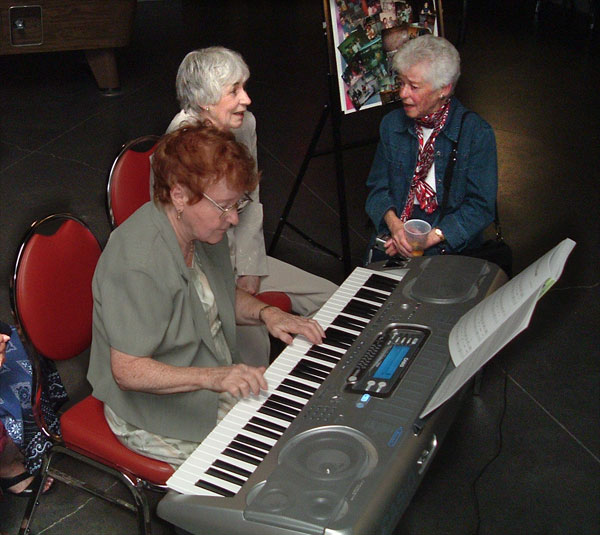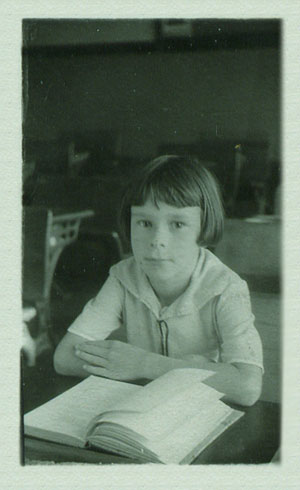Mar 31 2010
When The Swallows Return
By Michael McGrath
The blackbirds are back. I saw them first thing this morning in the back yard pecking away at lord knows what. The Ravens never leave. They are always there in the background. I admire them for their stealth and cunning. They are true survivors and can be seen in the treetops about town seemingly content and well too do even at minus thirty degrees Celsius.
Soon the Robins will appear with this early spring weather. One morning I will simply awake, lookout the back kitchen window and there will be the Robins busy gathering material to nest. They are so domesticated and hardly ever have time for any fun. The Robins are all about making and raising their young. It is a full time job because most of the time they are not all that careful in selecting a secure and safe place for their nests and that results in their neurotic flights here and there all day long trying to protect the little ones from other birds and those dreaded cats.
When the Swallows arrive that really makes it official. Spring is here. They keep coming back to that rickety little bird house perched precariously above the garage doors. Generations of this Swallow family just can’t give up on the old bird house and they return faithfully every year to put up with the run down accommodation and the regular hub bub of our comings and goings to the garage. We run cars in and out with exhaust smoke belching all around the bird house. In mid summer we are in and out of the old garage on our motorcycles which produce loud, high decibel roars. Nothing else seems to matter to the Swallows as long as they can return to their familial birdhouse.
They are ungrateful tenants in that they don’t even recognize us as the landlords. If Xavier or I are anywhere near the birdhouse they fly up in alarm and in dire resignation then they dive at us as though they were tiny little jet fighters. It is strange to be attacked by these little birds but it has become more or less common place for us during the summer months.
In reflection, it occurs to me that we two have more in common with the swallows then we would like to admit. I have heard too many jokes about bird brains over the years. Our common trait with these streamlined fighter birds has to do with our identification with home. In my case, I have lived in the Dunn homestead for most of my life. I was raised here from the time I was a baby and only left to pursue college education and fancy jobs in journalism, public relations and advertising along the way.
I was more than happy to fly back to old Third Avenue and land in the arms of my granny, Margaret Dunn. My mom Emily and Granny shared the place and kept the home fires burning while I and my sister Pat were off having other life experiences. Patty married John, a Mohawk fellow from Six Nations near Hamilton and they were wrapped up in raising their daughter Brooke and making a life down south. Regularly, they made the trek north during the summer mostly but with visits also at Christmas.
When I flew home it was as though there was no thought involved. I had a bunch of experiences in the belly of the province and simply stopped in my tracks and headed back up north to that welcoming front door. The house felt like a cocoon for me and I let it take me in and wrap me in a cozy, safe blanket. I needed that after a ferocious decade of fighting my way to the top of nothing where I found myself holding on to thin air and falling.
Granny almost jumped for joy at the prospect of having me around the house to play with, care for and challenge. Those were the things we did best together. As is the case with the Swallows there were all kinds of good reasons for me not to return to the white clapboard house on Old Third Avenue. Similarly, as is the case with the Swallows, nothing else mattered to me at the time other than making it home. I had to make it back home.
Mom was happy on my return too as this couple had sunken into a rather boring lifestyle that had to do mostly with Emily going back and forth to work at the main office in the Paper Mill and Granny taking care of the house and keeping mom fed and more or less grounded. With my return, Mom had more time to herself as Granny and I were like mischievous old friends that were more than willing to keep each other busy in an unlimited way that featured, lively discussions, board games, listening to music, reading to each other and at times just enjoying the comfort of each others company at the kitchen table.
Although it had been a decade since I lived at home, on my return it seemed as though I had never left. The house had not changed all that much, the neighbourhood was still pretty much the same. The town looked the same as it had thirty years before and there was something comforting and secure about that. I hated the fact that I felt as though I was living in a fish bowl but I equally loved the feeling I got when I moved around town and bumped into family, friends and neighbours I had known all my life. It always felt right to be in a place that I knew in every detail imaginable. Many people I met I had nothing in common with other than we shared the same place of birth and raising and some of them I really disliked. However, it still felt better to be in small town Iroquois Falls where I knew just about everyone, their family histories, their good points, their bad and their comings and goings. Of course as a gay person in my little town I had lots of critics but at the very least I knew exactly who they were.
As much as I hated to admit it I had enough learning and sensitivity to understand even where the bigots, racists and closed minded people were coming from. I understood that many of these poor souls had terrible lives, they were impoverished in many ways and had been abused, many had little education for the most part and they were not entirely satisfied with hardy party lives that left them sad, confused and angry much of the time. Most of them had never been any further from town than Timmins or Kirkland Lake. Their exposure to the outside world ended at the signpost announcing the town of Iroquois Falls out on Highway 11. I understood all that and it helped.
Comments Off on When The Swallows Return



 Thank you all for being here today in honour of Emmy. The family wants to thank Doctor Lupien and many nurses for the wonderful care they gave mom over the many months that she was sick. We also want to thank Father Katooka for his assistance with Emmy.
Thank you all for being here today in honour of Emmy. The family wants to thank Doctor Lupien and many nurses for the wonderful care they gave mom over the many months that she was sick. We also want to thank Father Katooka for his assistance with Emmy.